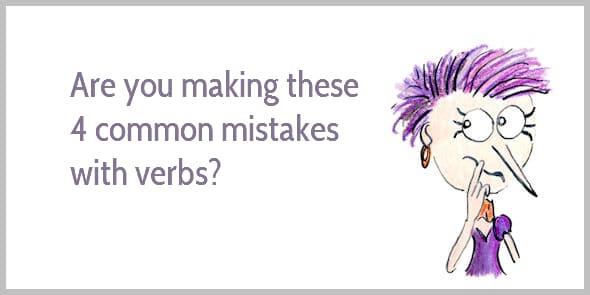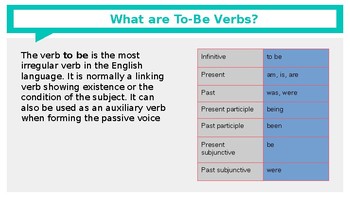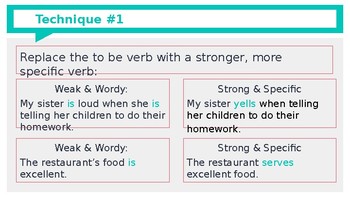Fun Info About How To Avoid Using Be Verbs

The passive voice makes your.
How to avoid using to be verbs. The main verb with an adverb or preposition, or both. The right verb can show in one word what might take several phrases to express otherwise. Walk is an example of a weak verb.
Always be on the lookout for strong, specific verbs to get your meaning across. How to revise your sentences to eliminate unnecessary to be verbs circle or highlight forms of to be verbs in your sentences and paragraphs: Why should we avoid “to be”?
Invite them to come up with ways to replace the “to be” word in each. These verbs weaken your writing and reduce the reader’s perception of immediacy. Weak writing, telling writing, passive writing how (and how not) to follow the rule sometimes authors try to avoid using was, and they don't quite pull it.
The ‘be’ verb is the most commonly used verb in the english language, yet it can be tricky to use because it comes in many forms. First, not all use of “to be” verbs is forbidden. For example, if the present progressive is the best verb tense to use in a.
Modal verbs are useful, but you can use them in moderation. A phrasal verb is actually a verb made up of two or more words: Using these words in combination gives them a meaning.
Sometimes our writing may require it. Adverbs weaken verbs and drag down your prose. So avoiding these verbs can increase tension and improve.
Still, it’s always worthwhile examining your writing to see if you can remove any instances of the verb “to be” and make your text more visually interesting to your readers. Is, am, was, were, being,. “she was running through the forest when she.
Cut out verbs ending in “ing.”. We know to avoid too many be verbs. Instead try to use action verbs.
I am a writer or i write. But what are some other action verbs that aren't strong? Verbs and phrases to avoid.
Practice writing in active voice. Too many modal verbs undermine your persuasiveness. In order for an object to give maximum structure to instruction, it should be free of vague or ambiguous words or phrases.





![Tech2040 [Licensed For Non-Commercial Use Only] / Abcd Objectives | Monografia](https://i.pinimg.com/736x/9f/19/91/9f1991f5e51b14c9d5a2221662450306--thinking-skills-fun-learning.jpg)










